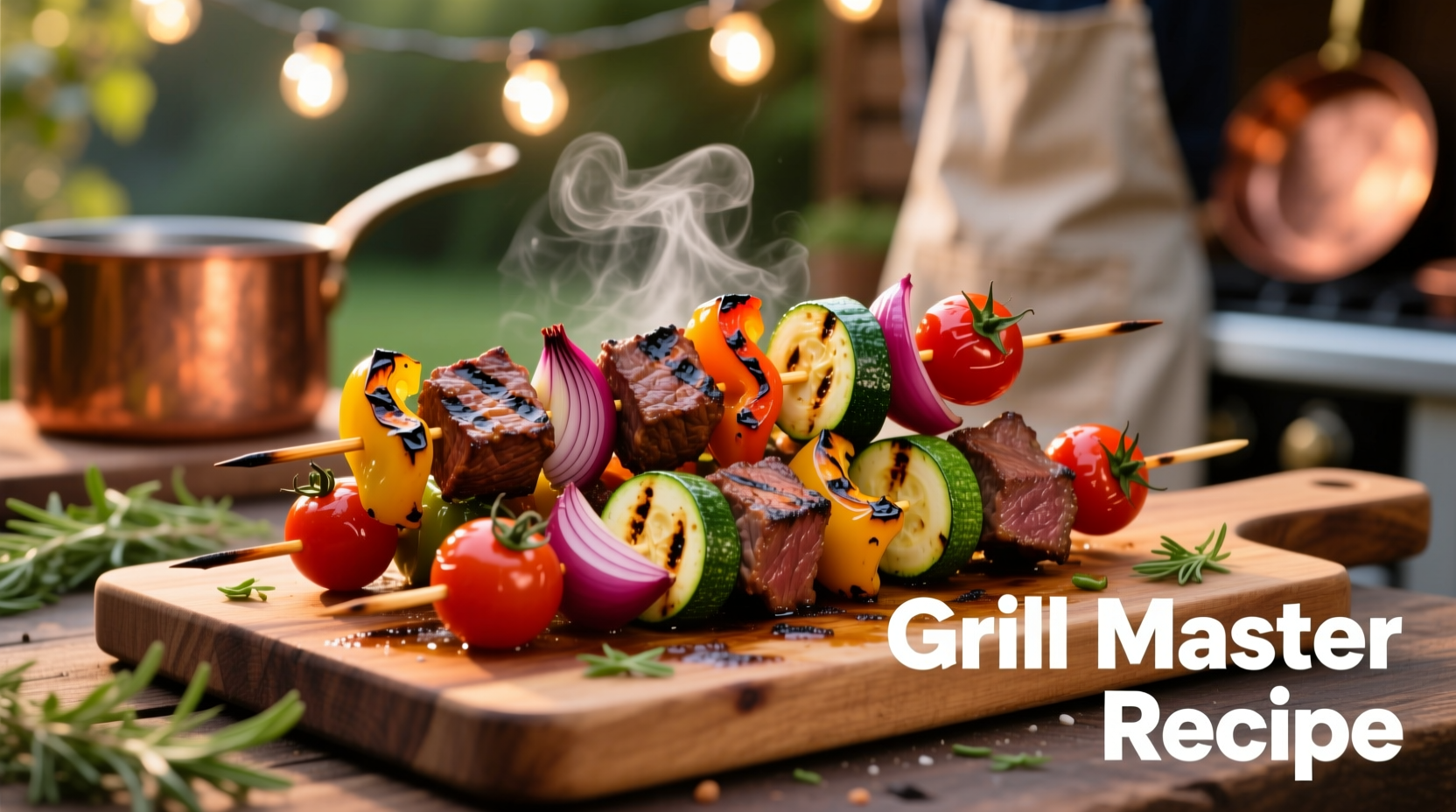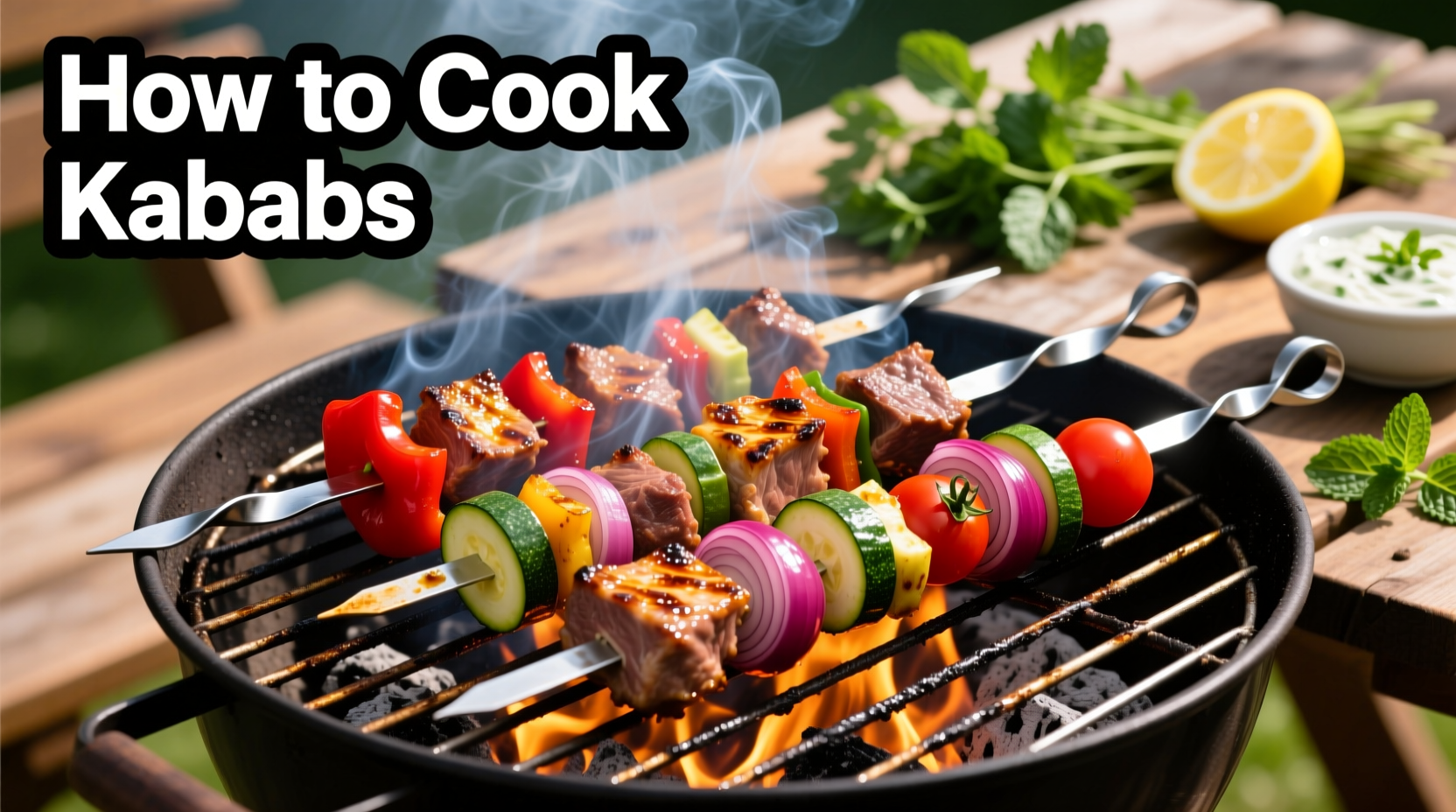Perfectly grilled kabobs require properly cut 1-1.5 inch meat cubes, 30-120 minutes marinating time depending on protein type, and consistent medium-high heat (375-400°F) for 10-15 minutes with frequent turning. Soak wooden skewers for 30 minutes first, leave space between pieces, and use a meat thermometer to ensure safe internal temperatures (165°F for poultry, 145°F for beef/lamb).
Master the art of kabob cooking with this comprehensive guide that transforms your backyard grilling into a culinary triumph. Whether you're preparing chicken shish kabobs for a weeknight dinner or lamb kebabs for a special occasion, these professional techniques ensure juicy, flavorful results every time—no more dry meat or falling-off vegetables. We've tested dozens of methods to bring you the most reliable approach based on food science and traditional preparation techniques.
Essential Equipment Checklist
Before you start, gather these kitchen essentials. Metal skewers conduct heat better than wood, but if using wooden ones, soak them in water for at least 30 minutes to prevent burning. A grill basket helps contain smaller vegetable pieces. Most importantly, invest in an instant-read thermometer—the single most reliable tool for perfect kabobs.
Meat Selection and Preparation Guide
Choose well-marbled cuts like sirloin, ribeye, or chicken thighs for maximum flavor and moisture retention. Cut meat into uniform 1-1.5 inch cubes—too small and they'll dry out, too large and they won't cook evenly. For food safety, the USDA recommends cooking ground meat to 160°F and poultry to 165°F, while whole cuts of beef, veal, lamb, and pork should reach 145°F with a 3-minute rest time. USDA Food Safety and Inspection Service confirms these critical temperatures prevent foodborne illness.
| Protein Type | Marinating Time | Cooking Time | Internal Temp |
|---|---|---|---|
| Chicken | 30-120 minutes | 10-14 minutes | 165°F |
| Beef/Lamb | 2-8 hours | 8-12 minutes | 145°F |
| Pork | 1-4 hours | 10-14 minutes | 145°F |
| Firm Tofu | 15-30 minutes | 6-10 minutes | N/A |
Marinade Science: Flavor Without Sogginess
Effective marinades balance acid, oil, and seasonings. Too much acid (like lemon juice or vinegar) can denature proteins and create a mealy texture. For chicken kabobs, limit acidic marinades to 2 hours maximum. Beef and lamb can handle longer marinating times—up to 8 hours—to tenderize tougher cuts. Always marinate in the refrigerator, never at room temperature. Professional chefs recommend reserving some fresh marinade for basting to avoid cross-contamination with raw meat juices.

Threading Techniques That Prevent Disaster
How you assemble your kabobs determines whether they'll stay intact on the grill. Alternate between protein and vegetables, leaving small gaps between pieces for even cooking. For slippery ingredients like cherry tomatoes, thread through the stem end. Cube vegetables slightly larger than meat since they cook faster. When using wooden skewers, fold them in half through ingredients for double security. This threading method significantly reduces the common problem of ingredients spinning when you try to turn them.
Grilling Masterclass: Temperature Control Secrets
Preheat your grill to medium-high (375-400°F) and create two zones: direct heat for searing and indirect for finishing. Start kabobs over direct heat to develop grill marks, then move to indirect heat to finish cooking without burning. Turn kabobs every 2-3 minutes using tongs, not a fork which pierces and drains juices. For gas grills, keep the lid closed as much as possible to maintain consistent temperature. If flare-ups occur, move kabobs temporarily to the cooler zone.
Troubleshooting Common Kabob Problems
Dry meat? You're either overcooking or using lean cuts without sufficient fat. Try chicken thighs instead of breasts, or add olive oil to your marinade. Burning vegetables? Cut them larger than meat pieces and consider par-cooking dense vegetables like potatoes. Sticking to the grill? Ensure your grill grates are clean, well-oiled, and sufficiently hot before adding kabobs. Never force stuck kabobs—wait 30 seconds for them to release naturally.
Serving Like a Pro
Let kabobs rest for 3-5 minutes after grilling to redistribute juices. Serve with traditional accompaniments like tzatziki, hummus, or rice pilaf. For authentic Middle Eastern presentation, arrange on a large platter with lemon wedges and fresh herbs. Kabobs pair beautifully with grilled flatbread and a crisp salad. Leftovers make excellent next-day wraps or salad toppers.











 浙公网安备
33010002000092号
浙公网安备
33010002000092号 浙B2-20120091-4
浙B2-20120091-4